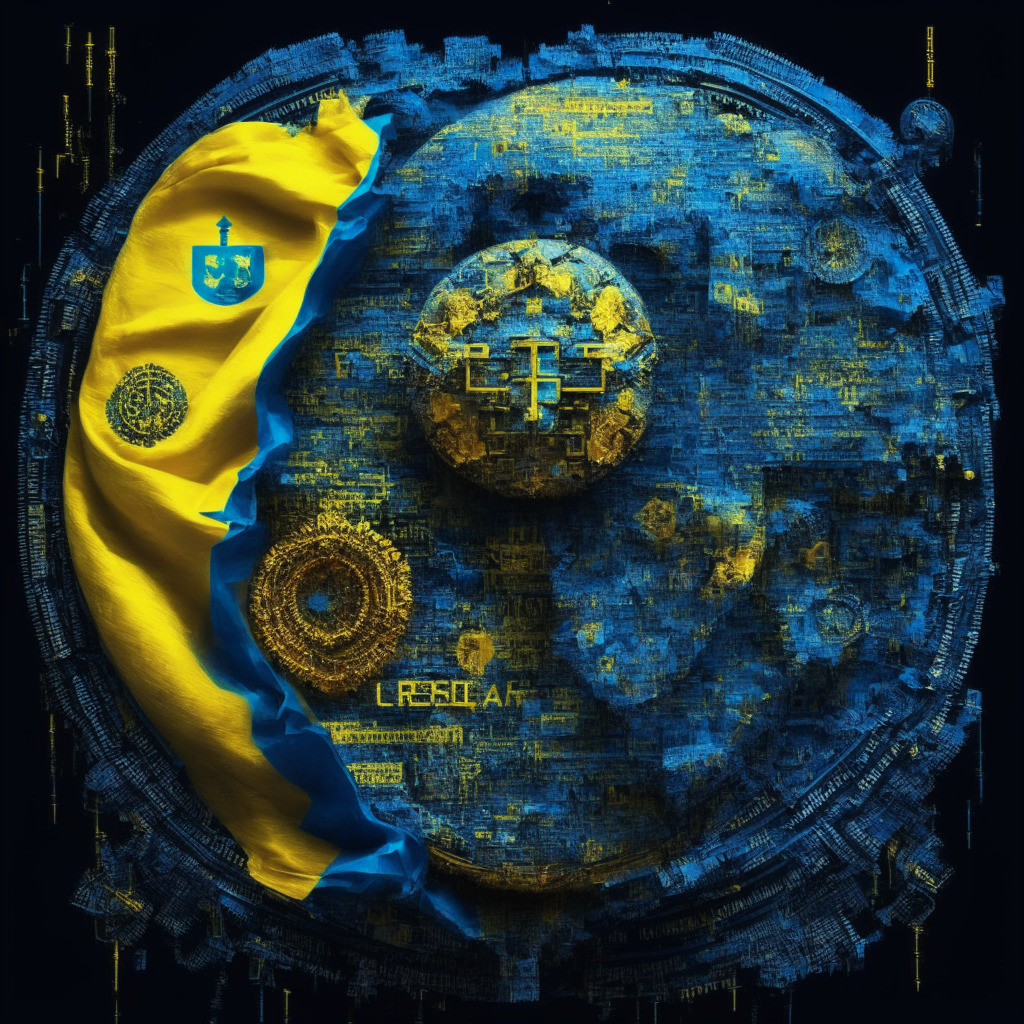Mastercard EVP Raj Dhamodharan emphasizes the importance of security, ease of use, and building a foundation of trust in the blockchain ecosystem. Tackling these issues is crucial for realizing the true potential of blockchain and cryptocurrency technologies in the financial industry.
Search Results for: TAC
Bitcoin’s $26K Support Amid Stricter Japan Regulations and Decline in Crypto Attacks
Bitcoin finds significant support at $26,000, amidst Japan’s upcoming stricter crypto regulations and a decline in global crypto attacks. Florida Governor Ron DeSantis’ support for cryptocurrencies and improved cybersecurity practices provide hope for a potential bullish reversal.
CFTC Tackles Fraud in Crypto: Balancing Investor Protection and Innovation
The Commodity Futures Trading Commission (CFTC) filed a complaint against five individuals accused of fraudulently soliciting funds from over 170 people in a Bitcoin trading scheme. The Icomtech case highlights the challenges of regulating cryptocurrencies while nurturing innovation and maintaining investor safety.
IRS Cyber Attachés: Tackling Crypto Crimes Globally or Falling Short?
The US IRS is deploying “cyber attachés” to combat tax and financial crimes involving cryptocurrency in Sydney, Bogota, Frankfurt, and Singapore. These experts aim to foster collaboration, information sharing, and effectively combat cybercrime on a global scale amid growing concerns of tax evasion and sophisticated cyberthreats.
High-Profile Phishing Attack: Stolen NFTs, 100 ETH Loss, and Lessons Learned
In a recent high-profile phishing attack, valuable tokens from Bored Ape Yacht Club (BAYC) and Mutant Ape Yacht Club (MAYC) were stolen and sold on the Blur marketplace, resulting in losses surpassing 100 ETH. This alarming event underscores the importance of staying vigilant in the crypto and NFT space, as phishing scams continue to threaten the security and livelihood of cryptocurrency owners.
Tornado Cash Attacker’s Surprising Move: Blockchain Security in Decentralized Systems Debated
The attacker of decentralized autonomous organization, Tornado Cash, submits a proposal to return control, sparking skepticism and optimism among crypto enthusiasts. The incident highlights the vulnerabilities and potential resilience of decentralized systems while emphasizing the importance of community-based approaches to mitigate risks and maintain trustless relationships in blockchain technology.
Tornado Cash Attack: Hacker’s Change of Heart Raises Questions on Trust and Blockchain Security
A new proposal surfaces to potentially restore Tornado Cash’s governance after a malicious attacker hijacked it. Quick action by community member Tornadosaurus Hex aimed to limit damage while the attacker surprisingly signaled intent to return governance control. This incident highlights the need for constant vigilance in blockchain cybersecurity.
Unexpected TORN Token Surge: Reversing Attack or Gigatroll Strategy?
Tornado Cash token (TORN) experienced a 10% increase after a proposal aiming to reverse malicious changes implemented by an attacker. The attacker’s proposal plans to restore governance state, with a good chance of execution. This incident emphasizes the importance of security and vigilance in the blockchain and cryptocurrency industry.
Crypto Market Watch: Top Gainers, Losers, and DAO Attack Impact Unveiled
In this article, we explore the recent updates in the crypto market, including top gainers and losers. We discuss the security breach facing Tornado Cash and its impact on the TORN price. We also highlight Pepe’s swift market capitalization growth, the rise of DREP coin, and innovative Web3 projects like IDEX and DeeLance. Stay tuned for further developments in the fast-paced world of cryptocurrencies.
Governance Attack on Tornado Cash: Trust Eroded and Future Uncertain as TORN Price Plummets
A recent governance attack on crypto mixer Tornado Cash allowed attackers to gain full control, granting themselves 1.2 million votes through a malicious proposal. The attackers have been withdrawing TORN from the platform’s governance vault and trading it for Ethereum, causing TORN price to plummet 35% within 24 hours. Major crypto exchanges like Binance suspended TORN deposits as a precautionary measure.
Ripple Acquires Metaco for $250M: A Bold Move in Asset Tokenization Amid SEC Battle
Ripple acquires Switzerland-based blockchain firm Metaco for $250 million, marking its entry into the asset tokenization field. This aims to expand Ripple’s enterprise offerings and reach in the international market, providing customers access to advanced technology for custody, issuance, and settlement of tokenized assets.
Ripple Acquires Metaco: The Future of Blockchain, CBDCs, and Custody Sector Opportunities
Ripple acquires Swiss custodian Metaco for $250 million to transform the cross-border payment market and explore Central Bank Digital Currencies and tokenized assets. This deal, amid evolving regulations and emerging opportunities, signifies an exciting time for blending traditional finance with the crypto landscape.
Visa Tackles Ethereum Account Abstraction & ERC-4337: Revolutionizing Crypto Payments
Visa explores Ethereum Account Abstraction and ERC-4337 for secure automatic recurring payments and potential gas fee redesigns. This aims to improve user convenience and enable seamless digital transactions in crypto onboarding experiences. Ethereum co-founder, Vitalik Buterin, supports these innovations for self-custodial wallets.
Australia’s Big 4 Bank Tackles Crypto Scams: The Implications and Challenges Ahead
Australia’s Westpac bank plans to launch a pilot trial in late May for crypto scam protection measures, aiming to combat fraudulent activities linked to digital currency market. This responds to the rising number of scams, with approximately 50% of customer-related losses involving investment scams and one-third of reported cases involving direct transfers to cryptocurrency exchanges.
Ripple Acquires Metaco: Boon for Crypto Custody or Integration Challenge?
Ripple acquires Swiss digital asset custodian and tokenization provider Metaco for $250 million, aiming to expand its enterprise services. With access to Ripple’s customer base and resources, Metaco’s growth is expected to accelerate as they target the booming institutional crypto custody market, predicted to reach $10 trillion by 2030.
Ripple Acquires Metaco, Tether’s New Strategy, and the Latest in Crypto Markets and Regulations
Ripple acquires Swiss-based Metaco for $250 million, expanding enterprise offerings and accelerating Metaco’s growth. Tether announces 15% net realized operating profits to be allocated towards Bitcoin purchase for reserve diversification. Meanwhile, Coinbase expands services in Singapore and China issues guidelines for NFT treatment.
Airstack Raises $7M: Revolutionizing Web3 with Natural Language AI or Ethical Dilemma?
Web3 developer platform Airstack raises $7 million in pre-seed funding, enabling developers to access cross-chain data through AI-supported natural language requests. The platform addresses developer pain points and has attracted over 200 developers since its April launch, with plans to onboard thousands more in the coming months.
Ripple Acquires Swiss Crypto Custodian Metaco for $250M: Growth Amid Regulatory Challenges
Ripple Labs acquires Swiss crypto custody provider Metaco in a $250 million deal, aiming to expand its offerings and provide secure storage and management of crypto assets for institutional investors amid rising concerns about secure asset storage.
Ripple Acquires Metaco for $250M: Bold Move or Regulatory Risk? Pros, Cons, and Main Conflict
Ripple acquires Swiss-based crypto custody provider, Metaco, for $250 million to diversify and expand its offerings. The acquisition aims to help Ripple overcome challenges like the ongoing SEC lawsuit and broaden its presence beyond the US market.
Ripple Acquires Metaco for $250M: Exploring Future of Tokenization and Institutional Adoption
Ripple acquires Swiss digital asset custody company Metaco for $250 million, aiming to expand institutional offerings and equip customers with technology to custody, issue, and settle tokenized assets. The partnership anticipates accelerated growth and stronger market impact in the evolving world of tokenization.
BlockFi Bankruptcy Battle: Creditors Demand New Management and Question Delay Tactics
Creditors of bankrupt cryptocurrency lending firm BlockFi argue that the company deliberately delayed the trial and made poor decisions, costing over $100 million. The ongoing battle highlights complexities and risks in the crypto lending industry, emphasizing the need for regulations and scrutiny to ensure long-term sustainability and security for investors.
Decentralizing Hollywood: MetaCannes Explores Web3’s Impact on Film Industry Future
MetaCannes explores the Web3-driven Film3 movement, showcasing how decentralization is transforming film creation, marketing, and distribution. This virtual festival seeks to familiarize industry leaders with Film3 via livestream as it disrupts Hollywood’s traditional structure and gatekeepers.
IRS and Ukraine Tackle Crypto Fraud: Balancing Innovation and Market Integrity
The IRS partners with the Ukrainian government to tackle cryptocurrency fraud globally, focusing on Russian individuals suspected of evading sanctions. They will provide training on tracing blockchain transactions for Ukrainian officials using a tool developed by Chainalysis. This increased scrutiny raises concerns for the crypto industry, but Brian Armstrong, Coinbase CEO, argues that blockchain’s transparency deters illicit activities.
The Dark Side of $40M Profit: Sandwich Attacks, MEV Bots and the Impact on Ethereum Fees
Jaredfromsubway.eth amassed $40 million in three months using a technique called “sandwiching” on decentralized exchanges (DEXs) through a MEV bot. The bot’s success contributed to rising Ethereum transaction fees and a group of 27 Ethereum-based projects have launched MEV Blocker to minimize its value extraction.
Kraken’s Scam Baiting Strategy: A Creative Tactic to Protect Investors & Expose Fraudsters
The US crypto exchange Kraken combats online scammers through “scam baiting,” involving a fake cryptocurrency account with a sizable balance to lure and expose scammers. This innovative approach highlights the importance of robust security measures, investor fund protection, and maintaining trust in the crypto industry.
Blockchain’s Future: Unlocking Potential while Tackling Challenges and Criticisms
The recent press release in New York City discussed blockchain’s promising potential, rapid adoption across various sectors, and benefits like increased transparency and efficiency. However, it also addressed challenges like high energy consumption, security concerns, and regulatory complications in the industry.
Bitcoin Spam Filter Proposal Divides Crypto Community: Tackling Meme Coins and NFTs
Leading Bitcoin code contributor Luke Dashjr has proposed “spam filtration” to address blockchain congestion caused by the meme coin and NFT trading phenomena. However, the proposal received mixed reactions, leaving it unclear if the changes will gain enough momentum to be enforced into the Bitcoin protocol.
Aragon Retools DAO After 51% Attack: Debating Treasury Security Vs. Decentralized Governance
Switzerland-based Aragon Association recently pulled plans for voting rights over its future direction due to a 51% attack on its Aragon DAO. The attackers, called “Risk Free Value (RFV) Raiders,” aimed to manipulate the use of Aragon’s ANT token for financial gain. In response, Aragon repurposed its DAO as a new grants program to secure its treasury and mission.
Stacks Coin Price: Navigating Between Resistance Trendline and $0.67 Support – What’s Next?
The Stacks coin price is currently trading at $0.76, oscillating between a downsloping resistance trendline and $0.67 support in a narrow range. As the price converges to a single point, a decisive breakout is anticipated. Overall market sentiment remains bullish, but caution is advised.
Acing Your Web3 Job Interview: Master Blockchain, DApps, and Tackle Security Challenges
When preparing for a Web3 job interview, expect questions on your understanding of the Web3 ecosystem, blockchain technologies, DApps, smart contracts, problem-solving, collaboration, and addressing security and scalability challenges. Demonstrating knowledge, critical thinking, adaptability, and a forward-looking mindset is crucial to impress interviewers in this rapidly growing space.
Bitcoin Network Congestion: DoS Attack Fears Debunked by Increased Demand
Concerns about a potential denial of service (DoS) attack on the Bitcoin network emerged due to a sudden spike in transaction fees and unconfirmed transactions. However, analysts clarified that the congestion was caused by increased demand, not a premeditated attack.
High Bitcoin Transaction Fees: A Mempool Attack or NFT Boom? Debating the Causes and Impacts
The Bitcoin community is alarmed by high transaction fees and a backlog of transactions, with some perceiving it as an attack on the cryptocurrency. The focus is on Ordinals, a protocol for minting NFT-like assets on Bitcoin’s blockchain, and the recent surge in Bitcoin-based digital assets called inscriptions. While concerns arise, developers utilizing Bitcoin’s technology should be viewed as exploring new possibilities instead of undermining the platform.































